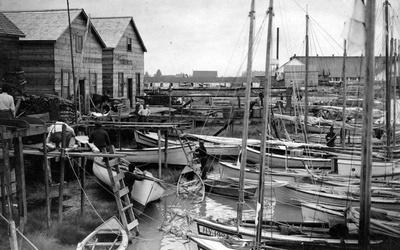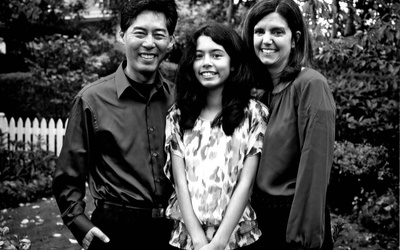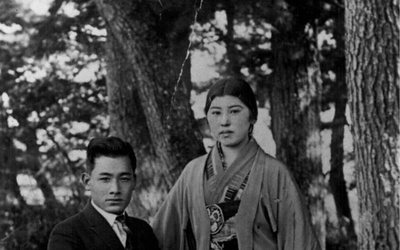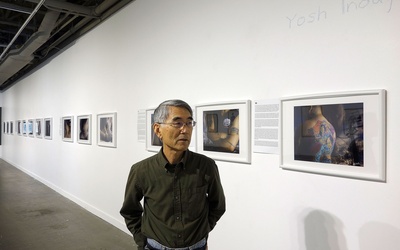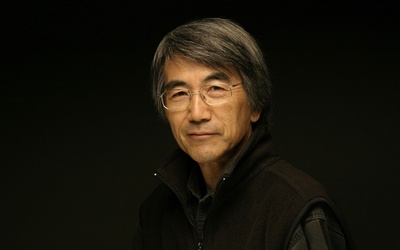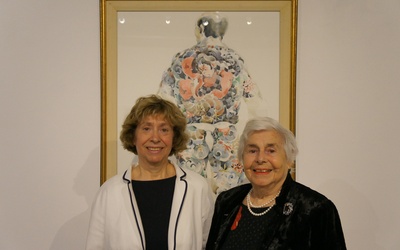Canadian Nikkei Series
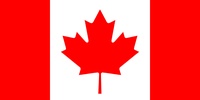
The inspiration for this new Canadian Nikkei interview series is the observance that the gulf between the pre-WW2 Japanese Canadian community and the Shin Ijusha one (post-WW2) has grown tremendously.
Being “Nikkei” no longer means that one is only of Japanese descent anymore. It is far more likely that Nikkei today are of mixed cultural heritage with names like O’Mara or Hope, can’t speak Japanese and have varying degrees of knowledge about Japan.
It is therefore the aim of this series to pose ideas, challenge some and to engage with other like-minded Discover Nikkei followers in a meaningful discussion that will help us to better understand ourselves.
Canadian Nikkei will introduce you to many Nikkei who I have had the good fortune to come into contact with over the past 20 years here and in Japan.
Having a common identity is what united the Issei, the first Japanese to arrive in Canada, more than 100 years ago. Even in 2014, it is the remnants of that noble community that is what still binds our community today.
Ultimately, it is the goal of this series to begin a larger online conversation that will help to inform the larger global community about who we are in 2014 and where we might be heading to in the future.
Stories from this series
Landscapes of Injustice: A Project Aims to Recover What Really Happened to Japanese Canadian-Owned Property During the 1940s - Part 1
Dec. 26, 2016 • Norm Masaji Ibuki
Having grown up Sansei in Ontario, I have often wondered if the World War Two internment experience is truly behind our families or if there is still unfinished business? Perhaps the most significant contrast between the Japanese Canadian and American internment experiences is that the US government did not sell off the farms, properties, and businesses of their internees while ours did. My own family, the Ibukis, owned a farm in Strawberry Hill, BC, that the government sold without asking …
Teacher Greg Miyanaga in British Columbia: Educating Canada - Part 2
Oct. 28, 2016 • Norm Masaji Ibuki
Read Part 1 >> Can you talk about your own path to becoming a teacher? My path to becoming a teacher is not a straight one. I watched how my Mom worked hard and thought constantly about her students and how to teach them best. And based on that role model, I vowed never to become a teacher! Seriously, what kind of person would put themselves through that! I took sciences at University of British Columbia, but after flunking out …
Teacher Greg Miyanaga in British Columbia: Educating Canada - Part 1
Oct. 27, 2016 • Norm Masaji Ibuki
In 2016, how does one go about learning to be Nikkei and more to the point of this interview, teach it? On the drive into school this morning I heard two reports on CBC news that were disconcerting: one about a public opinion poll that found that almost 70 percent of Canadians believe that immigrants need to be “more Canadian” (whatever that might mean?), the other about anti-Semitism. Then I get to school and talk to a rather condescending resource …
Ijusha Yosh Inouye on Becoming Canadian Nikkei - Part 2
Aug. 19, 2016 • Norm Masaji Ibuki
Read Part 1 >> Can you talk a bit about your families here? I married three times and broke up three times. I have six sons. I am very reproductive. I shouldn’t have left Japan. You know Japan’s birth rate is critically low. They need me! I already talked about my three sons in Japan. So, my three other sons here: one graduated from McMaster University in Hamilton last year. He’s an ambitious boy, Jeremy, not knowing his limit yet. …
Ijusha Yosh Inouye on Becoming Canadian Nikkei - Part 1
Aug. 18, 2016 • Norm Masaji Ibuki
Torontonian Yosh Inouye, a retired 70-something photography teacher, was the one of the first to teach me about the paradox of what it means to be an Ijusha, a post World War Two immigrant from Japan. In many ways, that community still self identifies more strongly with “Japan” than any kind of Canadian Nikkei identity that has evolved over the years, much as many of our pre-WW2 relatives did. Some friends, enrolled their kids in Japanese school here and are raised …
Toronto “Tattoo” Artist Aba Bayefsky
July 29, 2016 • Norm Masaji Ibuki
At the Japanese Canadian Cultural Centre in Toronto there is a rare exhibition of tattoo art by the late artist and teacher Aba Bayefsky (1923–2001) and photographer Yosh Inouye until August 7, 2016. Photographer Yosh Inouye told me: I had witnessed tattoos in Japan. It was a frightening experience for a child. The tattoo was a fearful statement of belonging to a yakuza family. A Japanese tattoo artist living in Toronto, Maru, arranged the first tattoo shoot for me. I …

